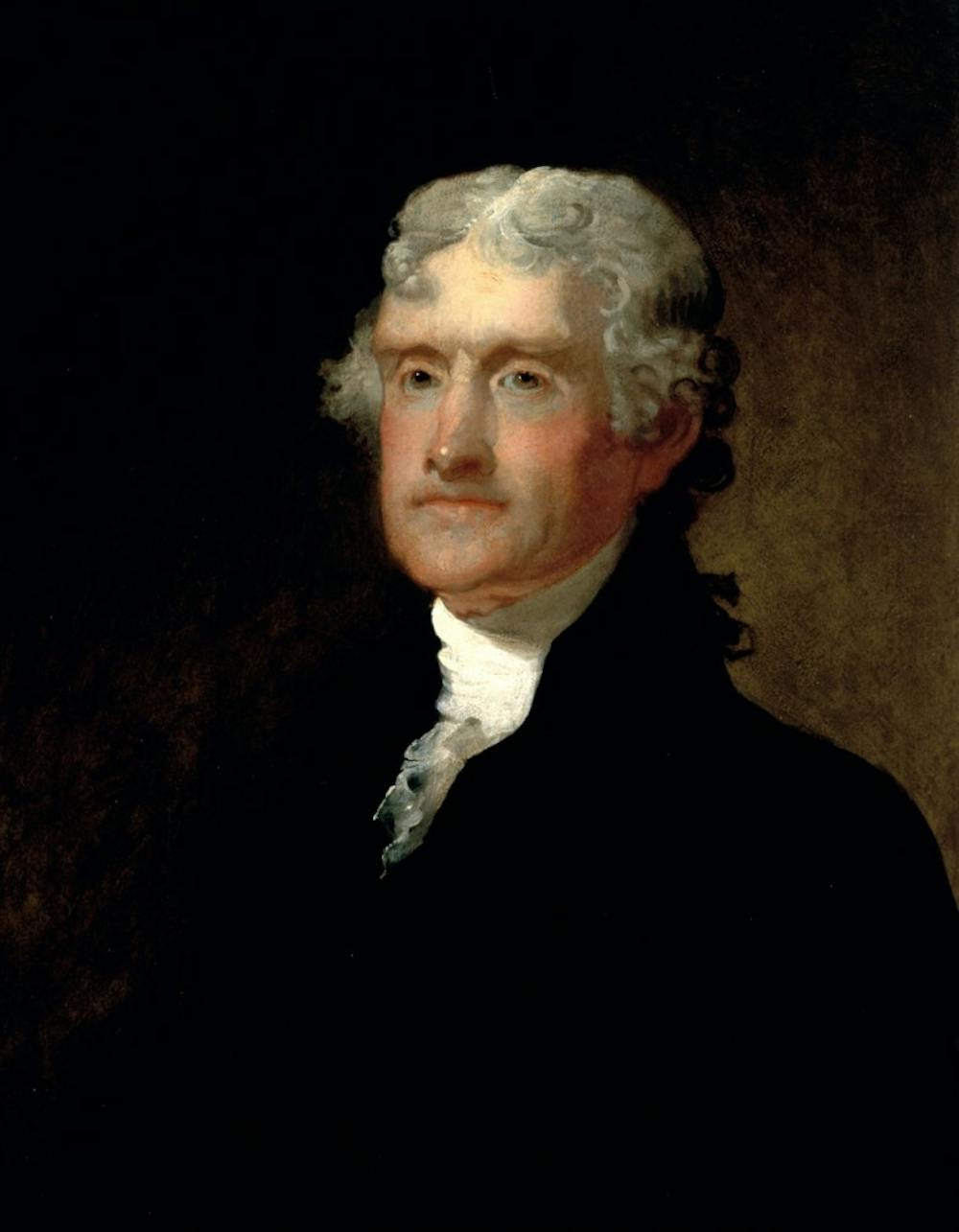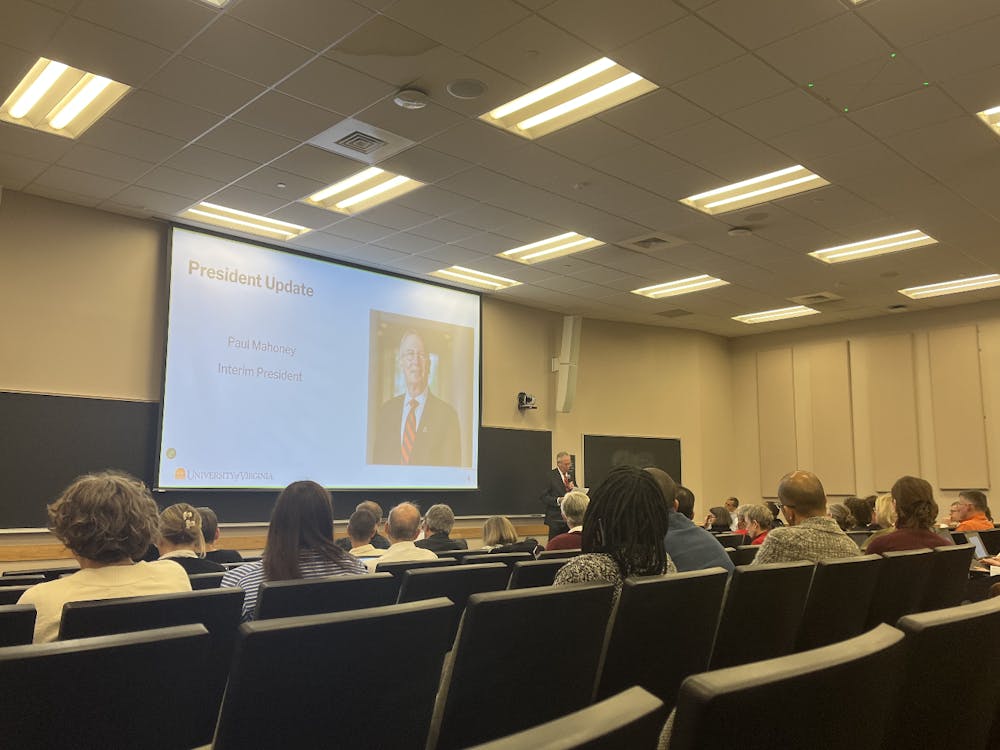A panel discussion titled, “The Legacy of Thomas Jefferson,” was held Monday at the Caplin Pavilion. The panelists explored how Thomas Jefferson — the University's founder, a U.S. president and a slaveholder — should be portrayed.
The Center for Study of Race and Law and the Diversity Committee of the Student Bar Association co-sponsored the discussion. Panelists included three University professors and Dr. Christa Dierksheide, a Monticello historian.
Dierksheide began by sharing how she felt Jefferson was portrayed when she was an undergraduate more than 15 years ago.
“I was an undergraduate at U.Va. more than 15 years ago now, and as I was thinking about the legacies of Jefferson, I was thinking about the way that Jefferson was presented when I was in college here,” Dierksheide said. ”I would say there was really only one legacy. And that was Jefferson as a hero.”
However, Dierksheide said she now sees two ways in which Jefferson’s legacy can be portrayed.
“He’s a hero of the founding generation, someone to be admired and lionized,” Dierksheide said. “But there’s also a second legacy, and I think this has become increasingly important in the past few years, and that is that he’s a hypocrite.”
Dierksheide said one way Monticello has considered telling both narratives is by giving slavery tours centered on Mulberry Row, the main plantation street.
History Assoc. Prof. Kirt von Daacke, co-chair of the President’s Commission on Slavery and the University, specifically addressed Jefferson’s ownership of slaves.
Von Daacke said Jefferson owned more than 600 people in his lifetime, and freed only a few of these people in his will.
“His vision was in some ways an expansive one. He shaped both public and higher education in the United States in prominent ways,” von Daacke said. “But this was a white, male democratic educational experiment.”
Von Daacke also said Jefferson’s legacy laid the groundwork for the mistreatment of African-Americans at the University even after Jefferson’s death by outlining the ways the President’s Commission on Slavery and the University, and the student-run CIO Memorialization for Enslaved Laborers, are attempting to raise awareness of this legacy.
History Prof. Claudrena Harold also spoke at the panel discussion. She touched on Jefferson and his views towards African-Americans.
“Although Jefferson publicly stated his support for gradual emancipation, he insisted that freed blacks would have to leave the state of Virginia due to the inability of whites and blacks to reconcile,” Harold said. “We need to understand that we live in a world that Thomas Jefferson could not imagine.”
Harold also looked at the dangers of using Jefferson as a starting point for talking about race. She said that this often leads people to consider racial tensions in the past, but disregard current issues.
“At times, I get fatigue on both side,” Harold said. “What are the dangers when Jefferson always becomes our entry point to talk about race? What are the dangers, what are the politics when we begin the story of race during the enslavement period, and stop in 1865, and don’t continue to the present?”
Asst. Psychology Prof. Noelle Hurd was the last panelist to speak. She addressed a letter that she drafted and sent to University President Teresa Sullivan in November, asking Sullivan to refrain from using Jefferson quotes in emails to the University community that were intended to bring people together. The letter was signed by almost 500 members of the University community.
“I don’t understand how someone whose actions are inconsistent with the message you’re trying to portray is useful,” Hurd said in reference to Jefferson. “I think at minimum, it’s counterproductive, and, at most, it’s downright offensive.”
Hurd also said she didn’t want Jefferson to be the primary focus at the University.
“Our primary brand cannot be Jeffersonian exceptionalism,” Hurd said. “There are so many other things I love about this space here.”







